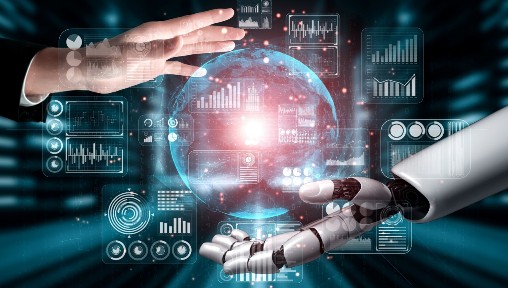
Generative Models: Tools like GPT-4 and DALL-E represent the current pinnacle, capable of producing high-quality text, images, and even music.
Future iterations will be more capable of understanding context, mimicking human creativity, and generating complex content across multiple domains.









AI for Creativity: AI is being used to co-create art, music, and literature, expanding the boundaries of human creativity.
2. Autonomous Systems
Self-Driving Technology: Advancements in autonomous vehicles, drones, and robots are leading towards systems that can operate without human intervention in complex environments.
AI in Manufacturing: Robots and automated systems powered by AI are increasingly taking on tasks in factories, improving efficiency and reducing human error.
3. Personalized AI
Tailored Experiences: AI is moving towards more personalized user experiences, adapting in real-time to individual preferences, behavior, and emotions.
Health and Wellbeing: AI is being used to create personalized healthcare plans, manage chronic conditions, and even predict health issues before they arise.
4. AI and Ethics
Bias and Fairness: As AI systems become more pervasive, there’s a growing focus on ensuring that they are fair, unbiased, and transparent.
Ethical AI Frameworks: Development of frameworks and guidelines to ensure AI is used responsibly, respecting privacy and human rights.
5. AI in Communication
Natural Language Processing (NLP): Continued improvements in NLP will lead to more natural, human-like interactions between AI and people, enhancing customer service, translation, and accessibility.
AI in Virtual Assistants: Virtual assistants will become more sophisticated, capable of handling more complex tasks and engaging in deeper conversations.
6. Quantum Computing and AI
Quantum AI: The integration of quantum computing with AI promises to solve problems that are currently intractable, such as complex optimization problems and large-scale simulations.
7. AI in Science and Research
AI for Discovery: AI is accelerating discoveries in fields like medicine, physics, and chemistry, helping to design new drugs, discover new materials, and even unlock the mysteries of the universe.
Climate Change: AI is being applied to model and mitigate the impacts of climate change, from predicting extreme weather events to optimizing renewable energy sources.
8. AI for Social Good
AI in Education: Personalized learning platforms powered by AI are transforming education, making it more accessible and tailored to individual student needs.
Disaster Response: AI is improving disaster response efforts by predicting natural disasters, optimizing resource distribution, and analyzing social media for real-time crisis information.
9. Human-AI Collaboration
Augmented Intelligence: Rather than replacing humans, the future of AI is likely to focus on collaboration, where AI augments human abilities, enhancing productivity and creativity.
Human-AI Teams: In workplaces, AI will act as a collaborator, working alongside humans to solve problems, make decisions, and create value.
10. AI Governance and Regulation
Global Standards: As AI becomes more powerful, there is a growing need for international cooperation on regulations and standards to ensure that AI is developed and used in a way that is safe, ethical, and beneficial for all.

Leave a Reply